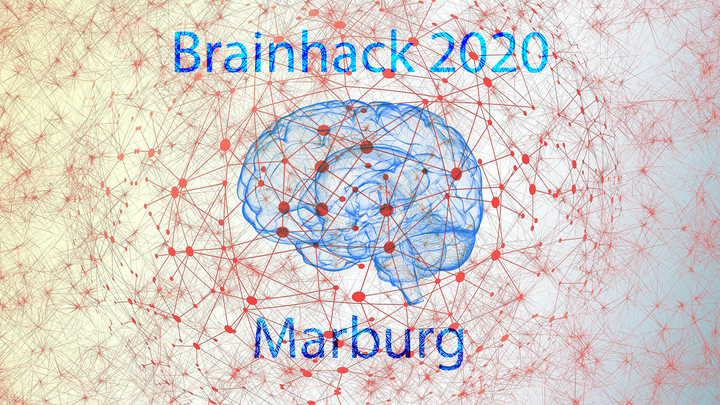Brainhack Marburg
 Image credit: Brainhack Marburg
Image credit: Brainhack MarburgDescription
Brainhack is a unique event format that convenes researchers from across the globe and a myriad of disciplines to work together on innovative projects related to neuroscience. Brainhack is a platform where researchers from all educational/professional levels (from undergrad students to professors) work together and participate in open collaboration. Regional Brainhack events keep the momentum going throughout the year.
In 2020, a local Brainhack event is being organized from researchers of the Philipps-University Marburg, collaborating interdisciplinary (mainly, departments of psychology, german language and literature and medicine). 2020 being 2020, this year’s Brainhack will be held 100% virtual, which makes it possible to participate and collaborate from anywhere on earth.
The Marburg Brainhack 2020 will focus on educational activities, basing the core values of the Brainhack global community: the application of open, accessible, and transparent science practices (“open science”). We will provide talks and workshops on methods and are looking forward to an exciting exchange of knowledge and ideas. Given the complexity of the field with rapidly emerging approaches and tools to learn and put in practice, we hope that our local Brainhack event contributes to create an organic environment to initiate and encourage quick adoption of these new approaches.
In addition to the educational activities, participants are welcome to initiate projects to work and collaborate together with other researchers. No requirements exist on what constitutes a valid project. Project proposals could constitute a vague idea on a given topic of interest or a fully developed plan. Intensive project involvement contributes to participants’ skills development, so igniting a project without polished outcomes is common and completely accepted.
We want to enable researchers with children to completely participate in the Brainhack Marburg. That is why we are particularly pleased to be able to pay for your private child care during the Brainhack, due to the fantastic funding of the UMR vernetzt programme of the Philipps-University Marburg.